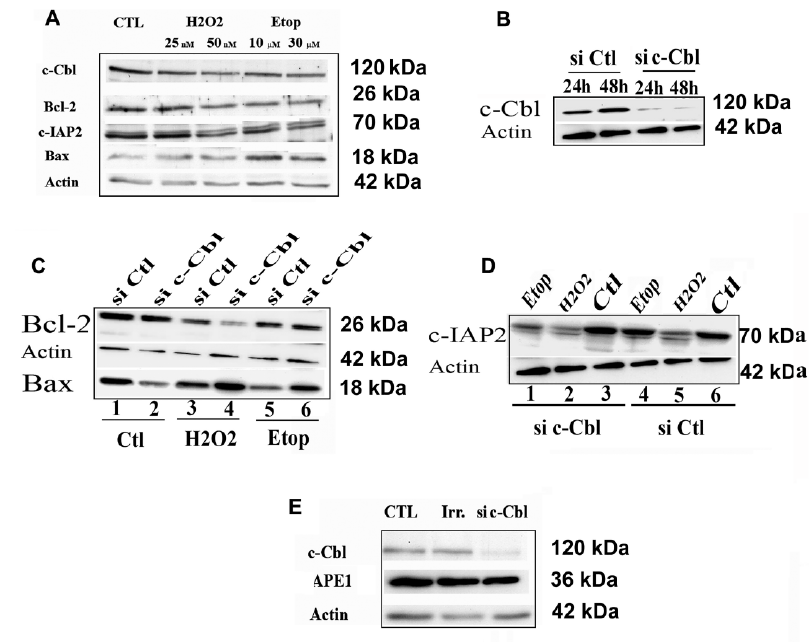
 |
| Figure 5: The proto-oncoprotein c-Cbl is an anti-apoptotic modulator and protects human malignant cells against oxidative stress. One representative in vitro experiment realized with LNCaP cells is reported. A): The proto-oncoprotein c-Cbl expression decreased upon pro-apoptotic inductors (hydrogen peroxide or etoposide), behaving as the anti-apoptotic regulators Bcl-2 or c-IAP2, whereas the pro-apoptotic regulator Bax increased. B) Expression of c-Cbl subjected to c-Cbl siRNA (sic-Cbl) compared to Control siRNA (si Ctl) for 24 and 48h. C and D): c-Cbl down-regulates the mitochondrial apoptosis pathway of the human prostate cancer LNCaP cell line. C): 48h of c-Cbl interference led to a strong Bcl-2 down-regulation (column 4) compared to c-Cbl-expressing cells (column 3) in the presence of 10 mg/mL of hydrogen peroxide (H2O2). Etoposide at the dose of 30μg/mL does not have the same effect (column 6 versus 5). Bax is highly expressed in the same conditions (column 4 versus 3 with H2O2, and column 6 versus 5 with etoposide). D): 10 μg/mL H2O2 and 30μg etoposide led to a down-expression of c-IAP2 (column 2 and 1 versus column 3) more pronounced than in LNCaP control cells (column 5 and 4 versus column 6). E): 48H c-Cbl interference of LNCaP cell line decreases the endonuclease APE1 that reflects oxidative stress: LNCaP knocked-down for c-Cbl showed a slight decrease of APE1 compared to an irrelevant siRNA (irr.) or to medium control (CTL). |